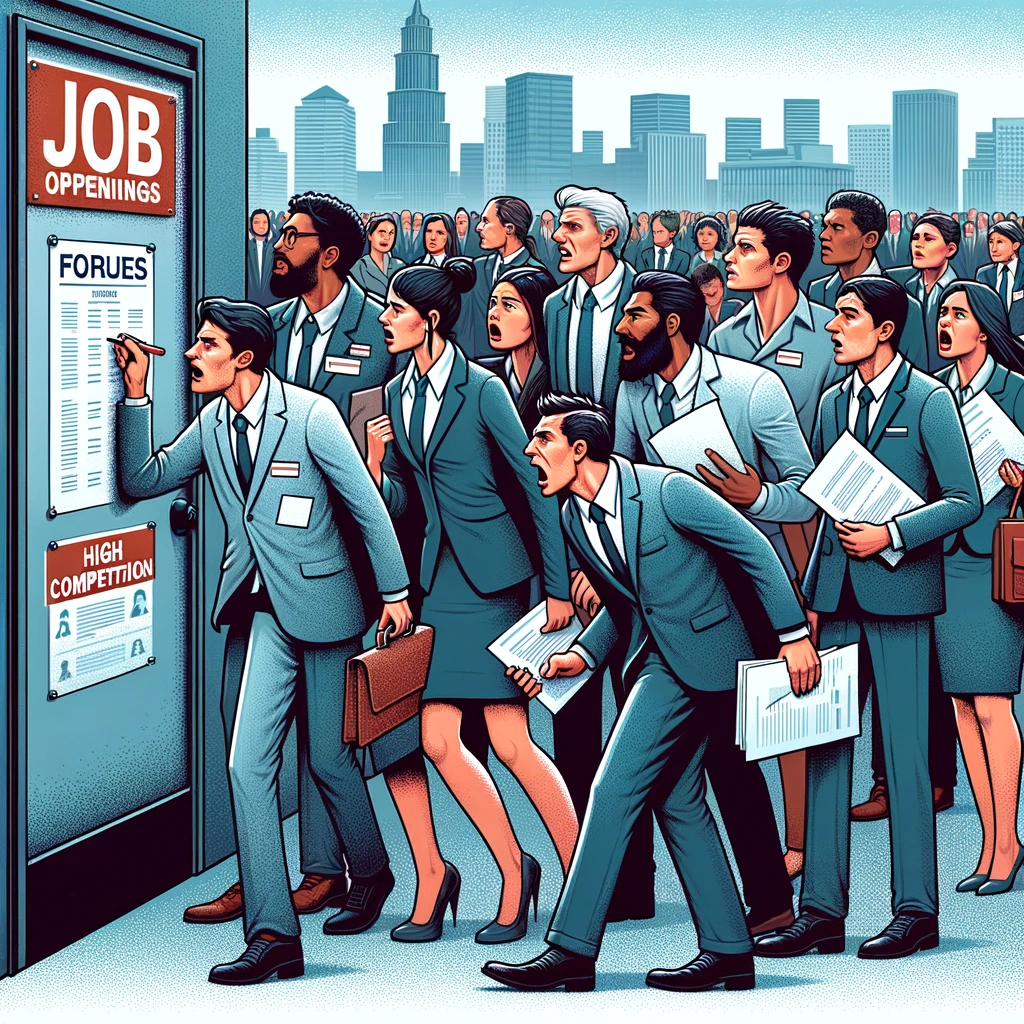
The Impact of Outsourcing US Jobs Overseas: Heightened Competition and Long-Term Destruction
Outsourcing has become a significant trend in the globalized economy, with many U.S. companies shifting jobs overseas to reduce costs and increase profitability. While this practice may offer short-term financial benefits for businesses, it creates a ripple effect that has long-term destructive consequences for the domestic labor market. One of the most critical impacts is the heightened competition for the remaining jobs in the U.S., leading to a range of economic and social challenges.
Increased Competition for Domestic Jobs
When jobs are outsourced, the number of available positions within the U.S. labor market decreases, resulting in increased competition for the remaining jobs. This heightened competition affects both skilled and unskilled workers. As more individuals vie for fewer opportunities, the job market becomes increasingly saturated. This saturation often leads to higher unemployment rates, underemployment, and job insecurity among American workers.
Wage Suppression and Job Quality Decline
The intensified competition for domestic jobs often leads to wage suppression. With an oversupply of labor, employers have less incentive to offer competitive salaries or benefits. Consequently, workers may be forced to accept lower wages, diminished benefits, and less favorable working conditions. Over time, this erodes the overall quality of jobs available in the U.S., contributing to a decline in the standard of living for many American families.
Skill Mismatch and Workforce Displacement
Outsourcing can lead to a mismatch between the skills possessed by the workforce and the skills required for the available jobs. As companies relocate high-tech, manufacturing, and customer service roles overseas, workers who previously held these positions may find themselves displaced. Retraining and reskilling can be costly and time-consuming, leaving many workers struggling to adapt to new industries or job functions. This displacement exacerbates the competition for jobs and makes it harder for displaced workers to find new employment.
Competition in the US Service Sector
The service sector in the U.S. has also been impacted by heightened competition, partly due to outsourcing and partly due to an oversupply of professionals in certain fields. For instance, the number of lawyers in the U.S. has grown significantly over the past 30 years. According to the American Bar Association, the number of active lawyers in the U.S. increased from approximately 740,000 in 1990 to over 1.3 million in 2020. This dramatic increase has led to intense competition within the legal profession, driving down average salaries and making it more challenging for new graduates to find employment.
Similar trends are observed in other service sectors such as finance, healthcare, and information technology. As these sectors become saturated, workers face increased pressure to differentiate themselves and secure stable employment. This competition often leads to longer working hours, higher stress levels, and a greater emphasis on continuing education and professional development.
Long-Term Economic Consequences
The long-term economic consequences of outsourcing are far-reaching. As wages and job quality decline, consumer spending power diminishes. This reduction in consumer spending can lead to decreased demand for goods and services, slowing economic growth. Additionally, with fewer high-quality jobs available, the U.S. may experience a brain drain, where skilled workers seek employment opportunities in other countries, further weakening the domestic labor market.
Social and Community Impact
Beyond the economic ramifications, outsourcing also has significant social and community impacts. As job opportunities dwindle, communities that once thrived on local industries may face economic decline. This decline can lead to reduced tax revenues, which in turn affect public services such as education, healthcare, and infrastructure. The erosion of these services can create a vicious cycle of poverty and economic hardship, further entrenching inequality and social discontent.
The outsourcing of U.S. jobs overseas is a double-edged sword that, while offering short-term financial benefits for companies, leads to long-term destructive consequences for the domestic labor market. Heightened competition for remaining jobs, wage suppression, skill mismatches, and workforce displacement are just a few of the immediate impacts. Over time, these factors contribute to economic stagnation, social inequality, and community decline. To mitigate these effects, it is crucial for policymakers, businesses, and society to consider the broader implications of outsourcing and work towards creating a sustainable and equitable job market within the U.S.



